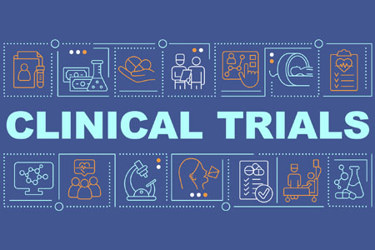Key Questions To Ask Clinical Trial Vendors
By Life Science Connect Editorial Staff

Ed Miseta, Chief Editor of Clinical Leader, recently spoke with Elevar Therapeutics’ Jennifer Lee, RSM US’ Steve Kemler, and Janssen Clinical Innovation’s Bert Hartog about Hard-Earned Lessons From Clinical Trial Implementations. Clinical trials are becoming more complex, and the number of contract research organizations (CROs) and other vendors is growing rapidly. Our expert panel agreed that the key to choosing the correct vendor is to ask the right questions.
How Do You Stack Up To Your Competitors?
Technology vendors that claim to outperform their competitors need to support their claims with hard evidence by providing key performance metrics for their scope of work and deliverables. For example, companies should ask for their percentage of on-time deliverables. When vendors cite case studies they’ve completed, companies should ask whether they had to make revisions or improvements during the study and how this affected the study’s timeline and budget.
When working with technology vendors, companies should also ask if their technology is scalable across all protocols and global sites and what areas they’re working to improve. Are they focusing on customer service, improving their data build timelines, adapting to new regulations, or expanding their capabilities? Their answers demonstrate where the company is growing.
How Do You Handle Payments And Invoicing?
Transparent, user-friendly payment and invoicing systems benefit both companies and vendor partners. Companies should ask detailed questions about how the vendor’s units are bundled, packaged, and invoiced. For instance, an advertising company may charge based on the number of potential patients screened rather than those enrolled in the study. Companies should also ask if the vendor has a standard template or uses customized templates that may drive up the cost of the study. Finally, ask how much and what type of data the vendor requires to tailor their services to the study’s needs.
Choosing a vendor for accounting and finance may seem more straightforward than finding technology vendors, but important questions remain. First, forecasting tools are crucial to negotiating site budgets and planning for milestone expenses. The right accounting tools are essential for smaller companies to manage trial expenses. You need to look at the data analytics and tools to create a model of the trial and update it using real-world data.
Companies must consider what kind of customer support is available when they have questions about the trial's finances. Trials sometimes go differently than planned, and companies want to avoid costly surprises. The right finance and accounting vendor can help companies maintain good relationships with their CROs by avoiding budget disputes.
Can You Increase Patient Enrollment?
Approximately 80% of clinical trials fail to meet enrollment timelines, and ~30% of Phase 3 study terminations are due to enrollment difficulties. Companies need vendors with proven strategies for enrolling and engaging patients. For example, vendors who supply electronic data capture (EDC) systems should provide tools that make it easier for patients to register, give informed consent, and participate in the study.
Also, companies should ask how vendors recruit diverse patient populations to meet the FDA’s new guidelines. Do they look outside of the United States for patients? Do they support hybrid and decentralized clinical trials (DCTs)? These questions help companies choose vendors with a proven track record of successful recruitment.
Do You Offer Flexibility?
Pharmaceutical companies face a dilemma when it comes to choosing vendors. They often must choose between one large, high-priced company with the capacity to meet all their needs or work ad hoc with multiple, smaller vendors, which may cost less but creates logistical complications. The solution is to select vendors with flexibility.
No one package fits all clinical trials, but companies need to do their research to find the best fit for them. For example, large vendors offering a variety of services may provide volume discounts. Likewise, small vendors working in niche areas may be agile and speedy and provide the expertise that large companies lack. Large or small, vendors who offer flexibility and customization make better partners than those who provide one-size-fits-all solutions.
Asking these questions and keeping lines of communication open helps companies choose the right CROs and vendors for their clinical trials. The right partnerships increase the chances that a trial will proceed on time and on budget; goals that companies, CROs, and others working in the clinical trial space all share.
